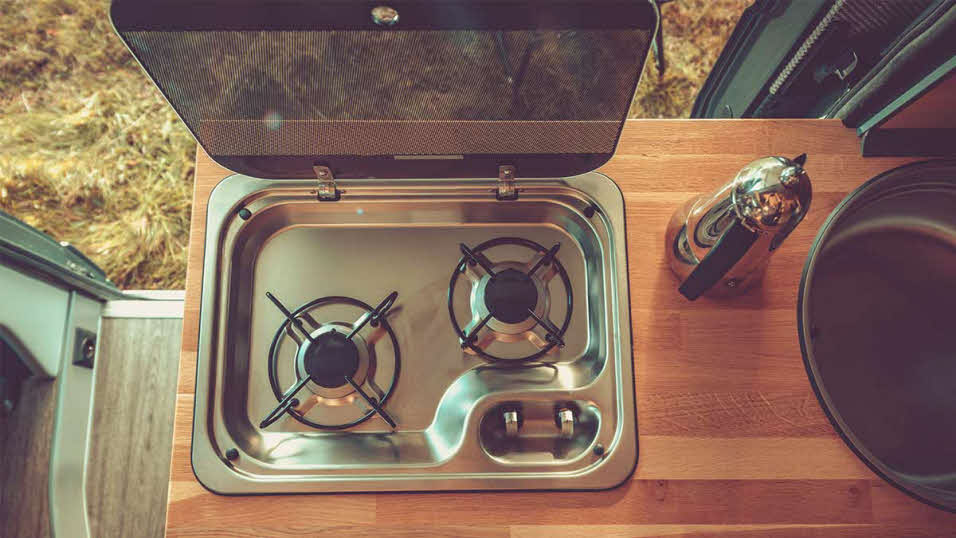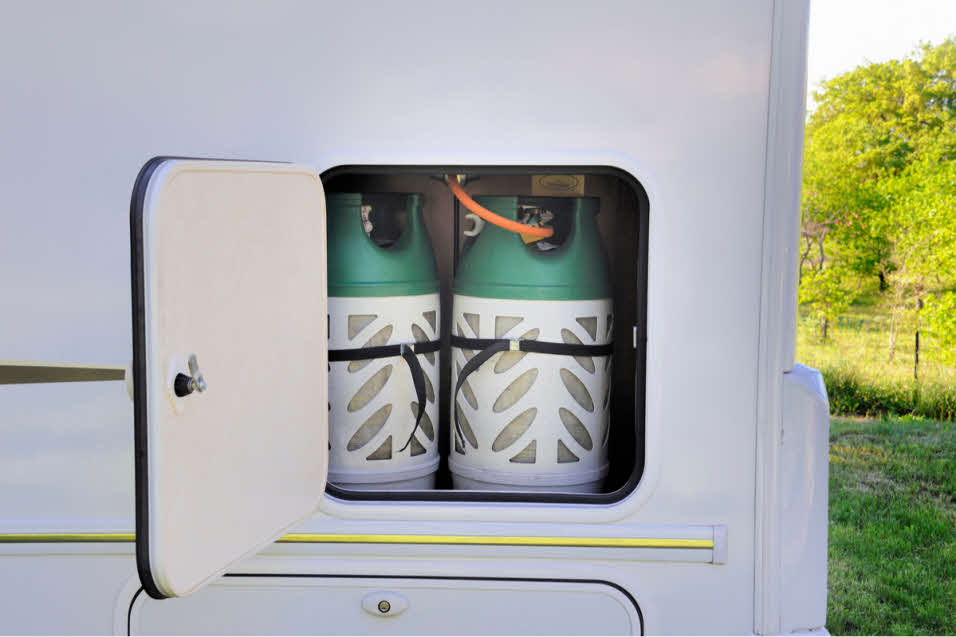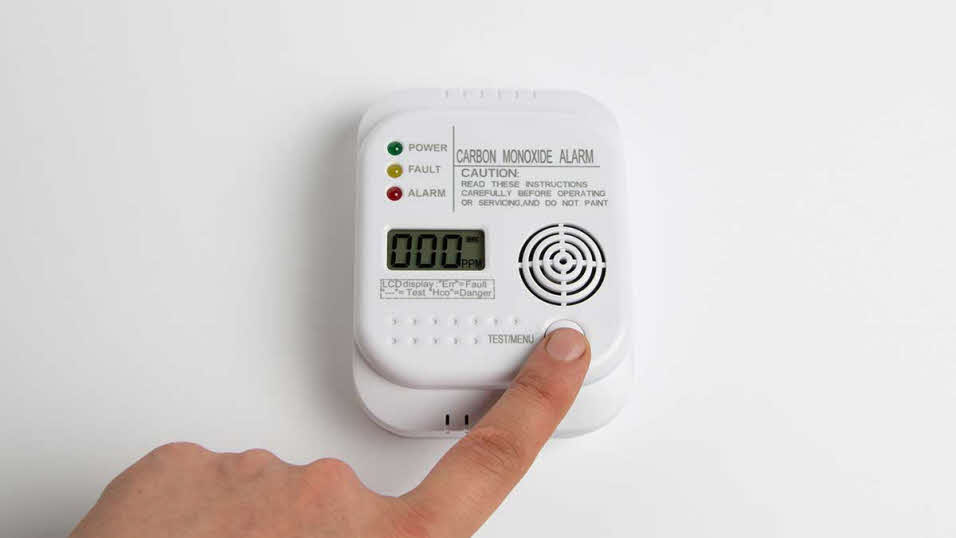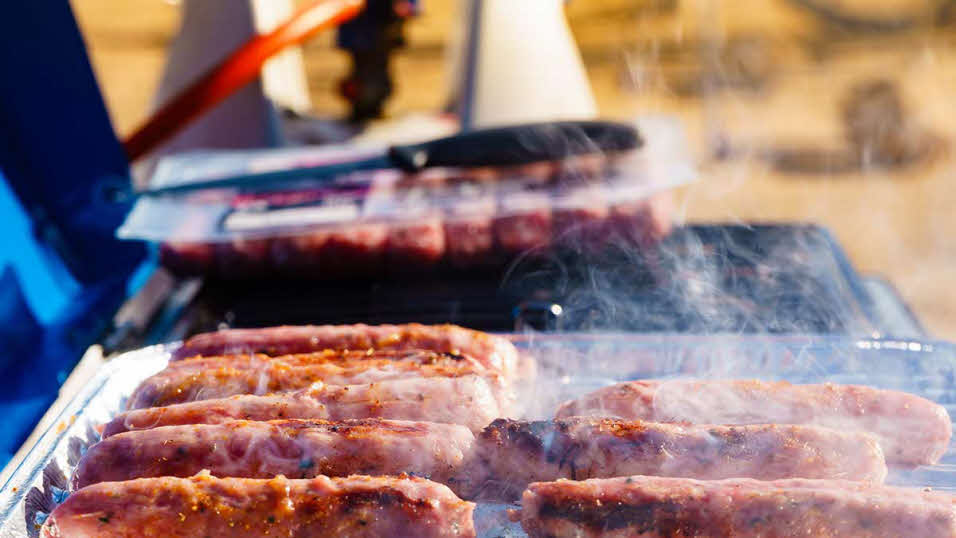How to stay gas-safe when touring
Having an in-built gas supply allows you to continue to enjoy the comforts of home whilst on tour. This can be anything from warm showers to rinse the salt away from a day at the beach, being able to cook well-earned hot meals, as well as chilling your milk for your morning tea. However gas-safety can often get overlooked, usually until something disastrous and potentially expensive happens.

Our handy hints will enable you to stamp out the causes of gas problems early on and let you get on with enjoying the great outdoors.
Wear and tear
Especially in the colder months, your gas supply works hard to keep you and your family warm and fed, so it’s not really surprising that over time parts will need replacing.
As the key gas connection into your caravan or motorhome, the pigtail hose needs looking after. The average lifespan of a pigtail fitting is between 3–5 years as the rubber naturally degenerates, meaning regular replacements are needed. Upgrade to Truma’s Propane Gas Hose and relax for a little longer knowing that it is designed to last for seven years. It is also designed to fit most common gas cylinder connections in Britain. As a Caravan and Motorhome Club member you can save 40% off its usual retail price by buying through our Club Shop.

Gas leaks
We know that the UK’s potholed roads are the bane of all drivers, and that all the jolts and bumps loosen any overlooked connections. Even overtightened gas couplings can cause leaks. The advice here is simple; as soon as a gas leak is detected and, if it is safe to do so, shut off the gas supply immediately.
Make sure you fit the GasStop Emergency Gas Shut off Valve, making future leaks a thing of the past as the valve automatically detects leaks and shuts down the gas supply. All Club members can save 10% through our Club Shop.
Carbon monoxide poisoning
Carbon Monoxide poisoning is deadly serious and although is often more associated with faulty household appliances or poorly ventilated houses, it can also happen in caravans and motorhomes, too. Carbon Monoxide gas is odourless and tasteless, and therefore confined spaces can fill with the toxic fumes quickly with very little warning.
Keeping your vehicle well ventilated and making sure your gas appliances are checked regularly are the practical step to take, but you should also fit a leisure vehicle certified CO detector such as the Fire Angel CO-9X Carbon Monoxide Detector or the Kidde 7COC CO2 Carbon Monoxide Alarm both designed for touring, with an 85dB alarm for a vital early warning signal and both with 10% discount when bought through our Club Shop.

Damaged gas connections
There’s nothing better when venturing to the great outdoors than enjoying a twilight evening meal near a barbeque and it’s only sensible to keep your barbeque away from anything flammable. However connecting and disconnecting the gas supply can be fiddly and you might even need tools to help you which can run the risk of damaging the coupling and hoses, and creating holes for gas to escape.
Hooking up your gas supply should be quick and easy, not to mention tool-free, so swap out your current couplings for the ingenious Cadac Quick-release Tailpiece with its 'click-in/click-out' feature for an instant fit and safe airtight seal. You also get 10% off your purchase, just for being a Caravan and Motorhome Club member.

Running on empty
Running out of gas can rank as either frustrating or utter disaster, made even worse by knowing that it is completely avoidable. There’s a variety of tricks you can try to check out your gas level all of which involve getting your hands dirty and a certain amount of guess work!
Why not save all that time and energy and go digital with the Truma Gas Level Control Monitor and get all the facts sent directly to your phone – it will even tell you how many days your gas will last, so you never be caught out in the shower again.
We always advise you to follow the campsite safety protocols and guidelines when camping or touring. Visit the Gas Safe Register for gas safety tips from the professionals.
For your own safety and that of others, your leisure vehicle gas system should be professionally serviced and maintained. It’s also always worth giving your system a visual check and functional test from time to time as well, especially if it hasn't been used for a while. If anything needs upgrading or replacing you can find a range of products at the Club Shop but if you have any doubt over your competency to fit these, we suggest you find a professional who can fit it for you.

